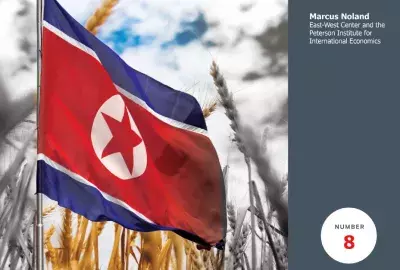

Over the past several years, North Korea has adopted legal changes that are increasing the centrality of the Workers Party of Korea and the state in agricultural production, distribution, and consumption. This development changes the basic nature of food insecurity in North Korea from one in which access to food is determined by the ability to purchase it in the market to one in which access to food is determined by political status. This development is of potential policy relevance: Although current conditions do not appear to be severe, if and when North Korea experiences another food crisis, foreign partners are likely to encounter a state dominated model more closely resembling the system that existed in the early 1990s at the onset of the famine and with it the attendant problems that humanitarian-relief agencies confronted at that time.
The views expressed are those of the author and do not necessarily reflect East-West Center policies or positions.

Over the past several years, North Korea has adopted legal changes that are increasing the centrality of the Workers Party of Korea and the state in agricultural production, distribution, and consumption. This development changes the basic nature of food insecurity in North Korea from one in which access to food is determined by the ability to purchase it in the market to one in which access to food is determined by political status. This development is of potential policy relevance: Although current conditions do not appear to be severe, if and when North Korea experiences another food crisis, foreign partners are likely to encounter a state dominated model more closely resembling the system that existed in the early 1990s at the onset of the famine and with it the attendant problems that humanitarian-relief agencies confronted at that time.
The views expressed are those of the author and do not necessarily reflect East-West Center policies or positions.







